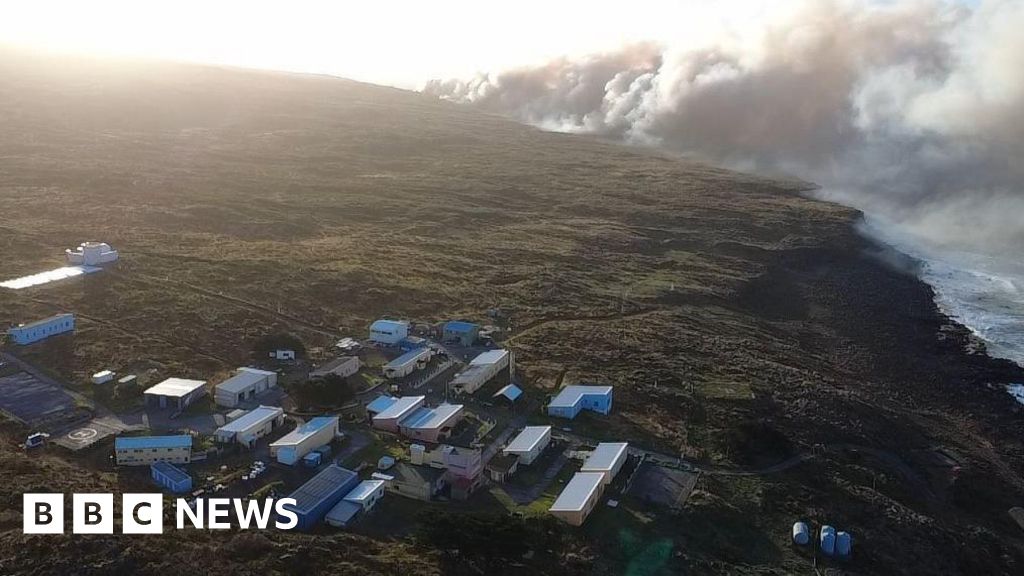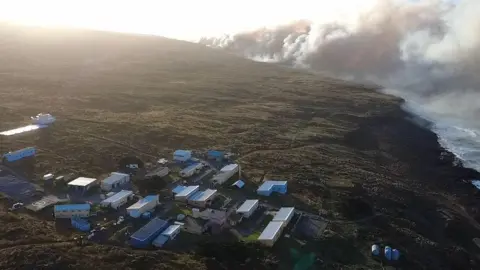 TERRES AUSTRALES ET ANTARCTIQUES FRANCAISES
TERRES AUSTRALES ET ANTARCTIQUES FRANCAISESFor nearly a month the French territory of Amsterdam Island in the southern Indian Ocean has been engulfed in flames.
Located about halfway between Australia, Antarctica and Madagascar, the island has seen burning across more than 55% of its 54 sq km area.
Amsterdam Island doesn’t have a permanent population but researchers have been stationed there since the 1980s.
Since the fires broke out, 31 people have been evacuated to Réunion Island, closer to Madagascar. And last week French authorities launched a mission to control the wildfires and assess their impact.
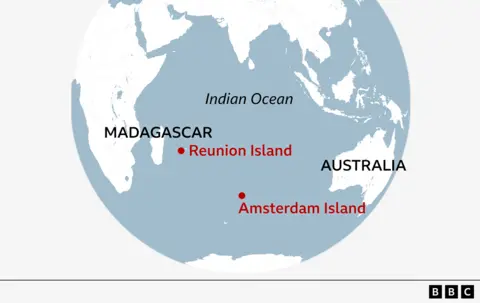
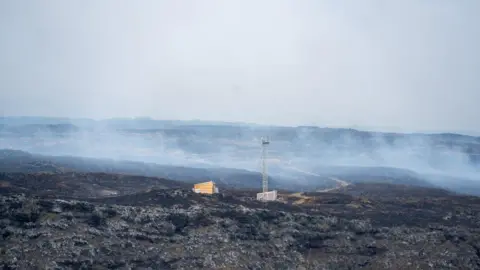 TERRES AUSTRALES ET ANTARCTIQUES FRANCAISES
TERRES AUSTRALES ET ANTARCTIQUES FRANCAISESThe most recent blaze was discovered on15 January by a scientist researching the atmosphere.
According to a report from the Laboratory for Climate and Environmental Sciences (LCES), it broke out near the Pointe Bénédicte observatory which monitors greenhouse gases, mercury, and aerosols in the atmosphere.
Despite residents’ best efforts, the fire spread towards the research base at Martin-de-Viviès. They were evacuated early the following day by a lobster fishing boat, the Austral, which was cruising nearby.
Rémi Chazot, a computer scientist who was based on the island, told Le Monde newspaper the group was “incredibly lucky” that the boat was in the area.
“This boat should have left a week earlier, but it had not caught its lobster quota. Otherwise, things would have gotten complicated.”
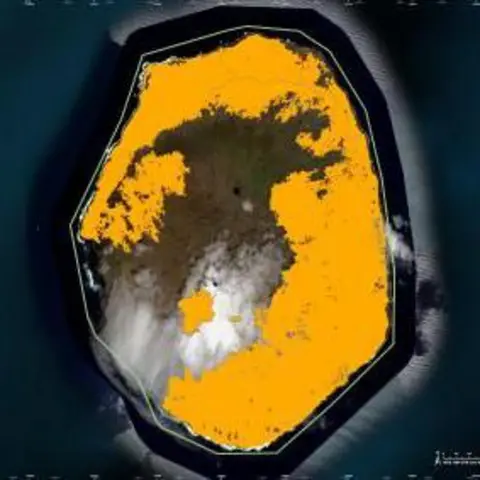 Copernicus Observation Programme
Copernicus Observation ProgrammeThe evacuees have since been transferred to Reunion, another French territory.
The fire spread across Amsterdam Island due to dry conditions and strong winds. The island does not have a river and winds can reach up to 40 km/h (24 mph). It is thought to have partly spread via the island’s network of peat bogs.
Although the full scale of the damage has not yet been assessed, satellite imagery has shown the island’s solar panels have been affected by the fire as well as its food and communication lines.
Conservationists have also expressed concern about the impact on wildlife.
Due to its unusual climate, the island is rich in biodiversity, serving as a breeding site for southern elephant and sub- Antarctic fur seals.
It is home to several albatross species including the Amsterdam Albatross, which breed exclusively on the island, and 84% of the world’s yellow-nosed albatross population. A colony of Southern rockhopper penguin also live on the island.
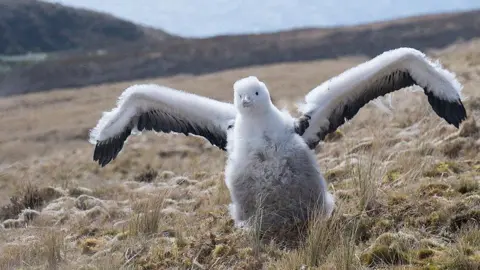 TERRES AUSTRALES ET ANTARCTIQUES FRANCAISES
TERRES AUSTRALES ET ANTARCTIQUES FRANCAISESDue to its remoteness and subsequent lack of pollution, the island is also used to research changes in the atmosphere and how this affects climate.
The evacuation is the first time atmospheric research has been suspended on the island for 45 years.
“It will take time and money to return to normal and this pause will mean quite a lack of data acquisition for our research”, said Marc Delotte, the director of the LCES’s mission to the Amsterdam Islands.
“This is, of course, not a good news for such a unique location.”
On the 7 February a reconnaissance mission set sail aboard a French navy vessel.
According to France’s Southern and Antarctic Territories department, the mission is made up of four firefighters from Reunion and seven technical staff, one of whom is a doctor.
Rather than putting out the fire entirely, the mission intends to secure the settlement. They’ll also aim to uncover the cause of the fire and how it spread, as well as re-establish the island’s energy and water mains.

